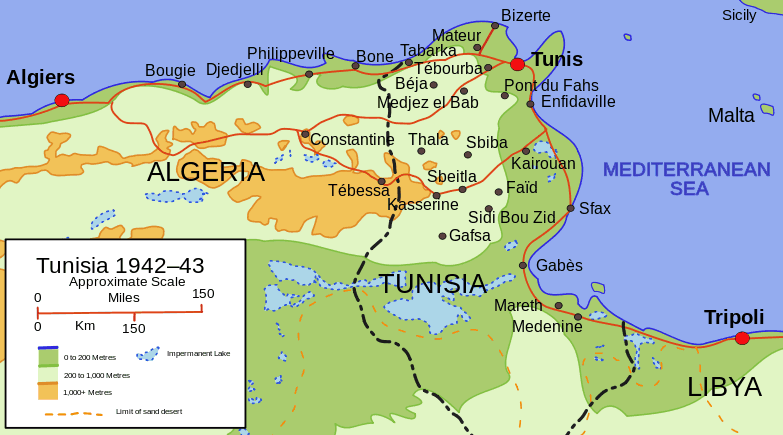 |
| Bey Muhammad al-Sadiq |
Abdul Aziz al-Tha'alibi became the leader of this group, many of whom were graduates of the elite Sadiqiyya College. Prior to World War I France declared martial law over Tunisia. After the war, al-Tha'alibi attended the Paris Peace Conference but failed to gather international support for Tunisian independence.
Although some French and Italians settled in Tunisia, their numbers were far smaller than in Algeria. Most colons lived in cities, not rural agricultural areas, so they had much less impact on the majority indigenous population than in Algeria, where many colons engaged in agriculture.
Also, Tunisia, unlike Algeria, was not considered an integral part of France. In Tunisia the French established a form of joint sovereignty, much as Britain had in Egypt.
  |
Nationalism continued to rise during the interwar years, and in the 1920s, a Tunisian union of workers, the Confédération Générale des Travailleurs Tunisiens (CGTT), was established. A rival political party, the Neo-Destour, also emerged; its leader, Habib Bourguiba, a graduate of Sadiqiyya and French law school, had been a member of the older Destour Party.
Bourguiba's Neo-Destour attracted a younger membership. Bourguiba recognized that the Tunisians would not be strong enough to oust the French by force of arms and advocated a gradual approach. However, the French imprisoned Bourguiba for his nationalist activities.
Tunisia was a major battleground during World War II. After mainland France fell to the German invasion, the pro-Axis Vichy French government continued to rule North Africa, and in 1942 both Allied and German troops landed in Tunisia. The bey and the Neo-Destour Party under Bourguiba both adopted pro-Allied stances in hopes of gaining independence after the war ended.
 |
| Tunisia during the 1942–1943 campaign |
When the Free French took over in the spring of 1943, they deported the bey. Bourguiba escaped to gather support for the nationalist cause. After the war France granted some reforms, to the dismay of the colons, but it did not grant Tunisia independence until 1956.